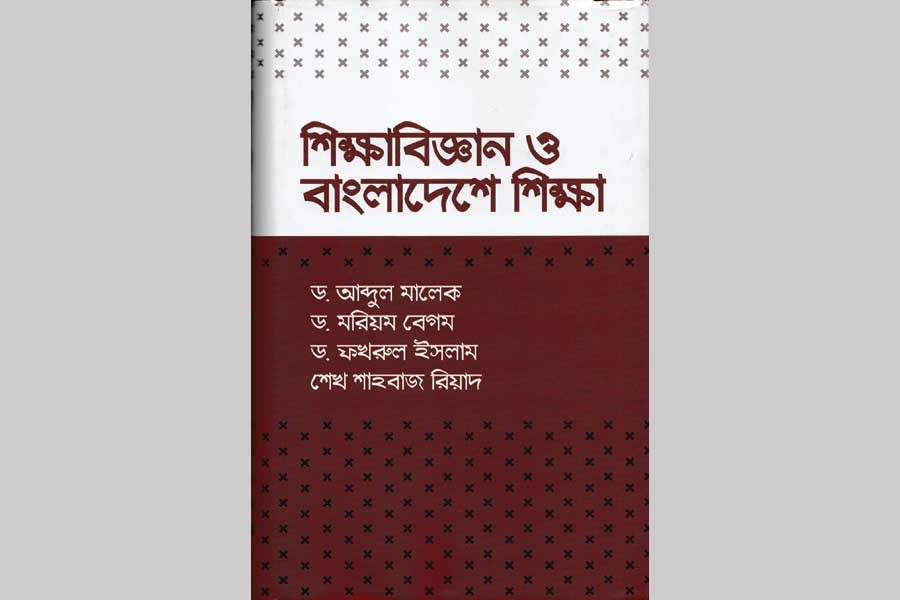Like in the other countries, 'Education Science' has become an independent discipline in the academic field of Bangladesh. Keen interest in this discipline is growing by the day among the academics, education policy-makers, researchers, development professionals, students and the general people. Dhaka University's Institute of Education and Research (IER) is the pioneer in studying and conducting research on education. The IER conducts 4-year Bachelor, Masters, MPhil and PhD programmes in Education. A good number of public universities are also offering graduate and post-graduate degrees in education. Teachers' Training Colleges of the National University conduct Bachelor as well as Masters in Education for secondary school teachers and other professionals. Bangladesh Open University also has courses in Certificate, Bachelor and Masters in Education. Moreover, today many private universities are offering Bachelor and Masters programmes in Education. Through these institutions the study of 'Education Science' has been coming up stronger for some time. But it is an irony that there is a lack of standard texts and reference books on the discipline of Education in this country. In this regard, the book Shikkha Bigyan O Bangladeshe Shikkha (Education Science and Education in Bangladesh) emerges as a timely and innovative initiative from the authors. The University Grants Commission (UGC) of Bangladesh published its first, second, third and fourth editions in 2007, 2009, 2012 and 2014 respectively.
The book contains sixteen chapters. The first chapter titled 'Introducing Education' discusses the concept, aims, functions and scopes of education. Actually, the theoretical aspects of education are presented here. In the second chapter, the authors delve deeper into an analysis of the concept of 'Education Science'. In general, we are familiar with the notion of 'Education as a learning process'. However, we are less acquainted with the concept 'Education as a science'. The authors attempt to explain how 'Education Science' has become a special branch of knowledge.
Chapter 3 deals with child education. Some very important topics like 'Child's Growth and Development', 'Learning, Attention and Motivation'; 'Intelligence and Personality' etc. are discussed in this chapter. This chapter also sheds light on child-centric education and its main characteristics.
The fourth chapter titled 'Education in Bangladesh' begins with a discussion on education in the Constitution of Bangladesh. Mentioning various provisions in the country's Constitution, it reminds us of the responsibility of the state to ensure education for all citizens. This chapter also examines the various educational commission reports formulated after the independence of Bangladesh. Especially, the aims and objectives of education described in the latest National Education Policy-2010 are explained in detail in this chapter. In the fifth and sixth chapters, the writers elaborate on the structure, curricula, administration and management of education in Bangladesh. Chapters 7 and 8 discuss 'Teaching Methods and Techniques' and 'Evaluation Management'. The latest development of assessment and evaluation system in the country's secondary level, i.e. School Based Assessment (SBA) and creative questions, is discussed elaborately in chapter 8. However, the authors believe, in the current socio-economic and political contexts of Bangladesh, introducing SBA may create unwarranted situations in the education sector. The next chapter deals with a very important topic --- 'Teacher Training in Bangladesh'. The historical background of teachers' training and different types of teachers' training for different levels of the education sector are presented here with due importance.
Another very important topic 'Education and Human Resource Development' is discussed in chapter 10. Education's role in human resource development and Bangladesh's position in Human Development Index (HDI) of UNDP are explained here. In the chapters 11 and 12, the writers discuss 'Education Financing in Bangladesh' and 'Efficiency and Wastage in Education'. The authors rightly observe that the allocation of money for the education sector in the country's national budget is inadequate. Major wastages (dropouts, the unemployed educated, overproduction of highly qualified persons, brain drain etc.) in the education sector of Bangladesh are described in chapter 12. Chapter 13 deals with quality education. Some important topics like quality education in Bangladesh, government's initiatives taken for improving our education and barriers to quality education in Bangladesh are discussed in this chapter. Chapters 14 and 15 focus on 'Educational Development Planning in Bangladesh' and 'Problems and Issues in Education of Bangladesh'. The authors analyse different National Education Commission and National Education Policy reports and draw the readers' attention towards the challenges and issues of the country's education sector. In the final chapter numbered 16, the writers focus on 'Education in Global Perspective'. How the various UN and international organisations deal with education is described here elaborately.
In selecting and organising the topics, both theoretical and practical aspects of education in Bangladesh have been given emphasis in the book. As a reference source, the book, indisputably, is set to prove its uniqueness. It is a highly informative work prompting its recommendation for those interested in the subject. The authors have extensive working experiences in the field of education. Professor Dr. Abdul Maleque and Professor Dr. Mariam Begum have been teaching and researching at Dhaka University's Institute of Education and Research (IER) since 1988 and 1996 respectively. Dr. Fakhrul Islam is working as a Joint Secretary with the University Grants Commission of Bangladesh, and Sheikh Shahbaz Riad is an Associate Professor at the Government Teachers' Training College, Dhaka. The authors deserve appreciation for producing this brilliantly written and edited academic piece. With a foreword by Dr. Manzoor Ahmed, Professor Emeritus of BRAC University's Institute of Educational Development, the book contains abundant food for thought for academics, researchers, policy-makers, students and educational professionals a whole. For the people interested in the challenges, issues and development of Bangladesh education, the book might prove a must-read. That the publication is an excellent and valuable contribution to the literature on education has been proven by the authors masterfully.
The writer is an independent researcher.


